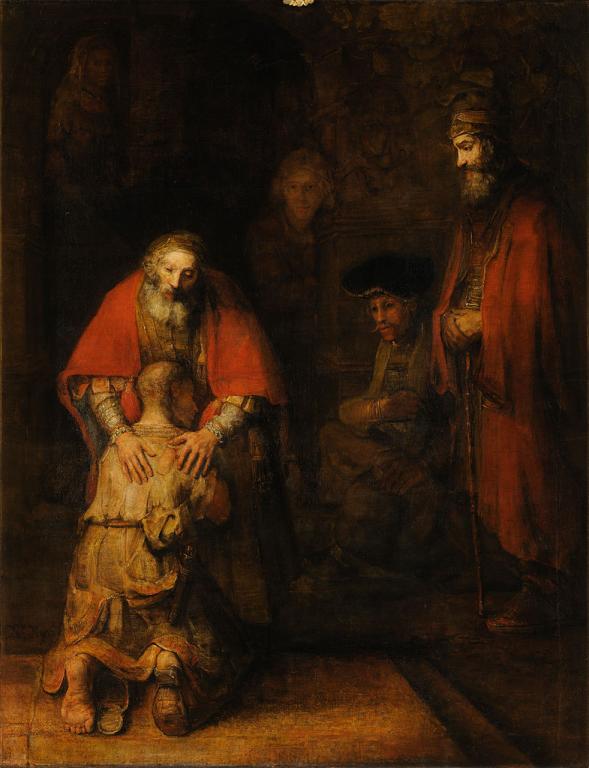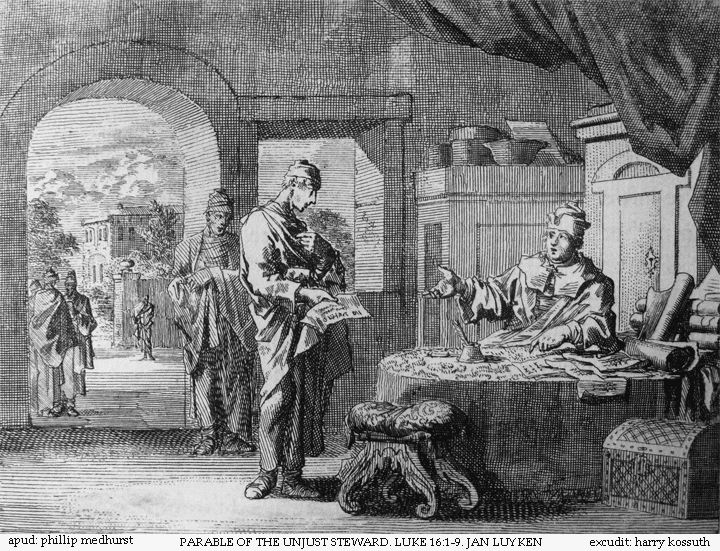
Compare 5:13; Mark 9:49-50
If we become bland, wholly conformed to the society and culture around us, in complete sync with surrounding social trends and current fashions, thinking just the thoughts that everybody around us thinks, desperately trying to ape the socio-cultural elite, there’s no reason for us to exist and no reason to call us the Church.

(Wikimedia Commons public domain image)
Compare Matthew 18:12-14
There are at least three points to be drawn from these brief passages:
1) The Lord really, really values the souls of individual people; there is nobody, not even the most unrighteous, for whom he has no concern. (This works powerfully, I think, against certain Calvinistic suggestions that he essentially created some people for the purpose of damning them.)
2) Christians aren’t supposed to interact solely with “the righteous.” If we’re to reach out, we’re to do it even to people whom we might regard as unlikely to accept the Gospel. They might well surprise us. (I know that I’ve been surprised. More than once.)
3) On one level, these parables seem to apply to people whom the Lord has lost. They’re his strayed children. (See the parable of the Prodigal Son, coming up next at Luke 15:11-32.) Taken that way, these parables charter missionary work and evangelization, taking the Gospel to people who haven’t heard it. (See Matthew 9:36-38.) However, they might just as well be taken as applying to those who’ve once known the Gospel but have gone missing. In that sense, these little vignettes support reaching out to those who’ve rejected their covenants and abandoned their former beliefs. Again, we’re to reach out even to people whom we might regard as unlikely to accept our message. They might well surprise us. I’ve been surprised on several occasions to see once embittered people return to full belief and fellowship.

Wikimedia Commons public domain
This is, of course, one of the great parables in the New Testament, and, if I may say so, one of the great stories in all of literature.
It has at least two themes:
1) It illustrates the mercy, forgiveness, and love of the father/Father.
2) It warns against smug self-righteousness and self-centeredness among those who’re trying to be disciples.
It would be important for either of those themes.

(Wikimedia Commons public domain image)
This is one of the weirder passages in the Gospels.
Is Jesus really commending what is, by just about any standard, unethical behavior?
I think that’s extremely unlikely.
What he is clearly praising, though, is worldly wisdom, prudence — canniness, if you will. Competence in real life. Functioning.
Disciples of Christ are not to be fools. They’re to be fully in the world, while, of course, not being of the world. They’re to be able to negotiate real life as well as non-Christians do while at the same time being fully Christian.
Perhaps the Incarnation of Jesus is a parallel to this, in a way. He was fully divine, and his Kingdom was not of this world. But he was fully human, too.












